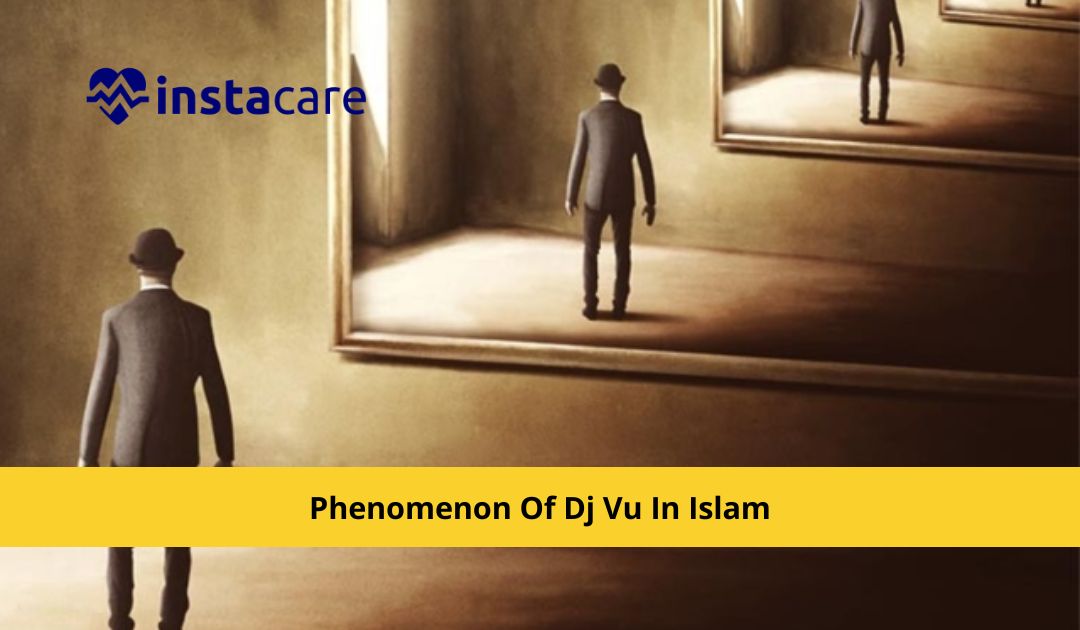In Islam, the peculiarity of history repeating itself isn't
expressly tended to or made sense of in strict texts like the Quran or Hadith.
Islam centers basically around issues of confidence, love, moral direction, and
direction for having an honorable existence. In this way, there is no great
reason for history repeating itself inside Islamic lessons.
Déjà vu is when, despite knowing you haven't, you feel like you've been there before in a strange situation.
It resembles a complete shock, hitting you out of the blue, and unexpectedly, you're gazing at something that feels intimately acquainted, yet it's undeniably expected to be new. So, what's up with this weird feeling, right? Furthermore, how can it be associated with what Islam educates?
This perplexing sensation astounded individuals for eternity. Envision thinking, "Stand by, have I done this accurate thing in another life or something like that?" That is a sensation that this has happened before for you. What's more, the most insane part about these minutes is that appear to be surprisingly reminiscent, however, you can't exactly place why. Also, hello, how does this associate with what Islam expresses about things?
The big question is, How does this mind whirl a sensation that this
has happened before squeezed into the lessons and thoughts in Islam? There's an
interesting thing about interfacing these spots between this strange
inclination and everything our convictions say to us.
Déjà Vu In Islamic Perspective
Islamic Viewpoint On Memory
In Islam, remembering things is important. The Quran tells
us how learning from our past is a big deal. But when it comes to déjà vu, how
does that fit in? Where does this feeling of already knowing something fit into
what Islam teaches about memory and learning from our past? It's like, Islam
says remembering stuff is super important, but what about when you feel like
you've remembered something that didn't happen? Where does that fit in the
memory game?
Exploring Spiritual Interpretations
Exploring Islamic teachings reveals fascinating insights
about déjà vu. Certain scholars link it to profound spiritual significance,
connecting this sensation to messages from a higher power. They ponder over
Quranic verses and Hadiths to understand this mysterious feeling. Can these
sacred texts provide clues or explanations for this inexplicable experience?
The quest to unravel the essence of déjà vu within Islamic teachings remains an
intriguing journey of spiritual exploration and interpretation.
Absence Of Specific Mention Of Déjà Vu
Islamic teachings, found in the Quran and Hadith, don't dive
into the topic of déjà vu directly. Instead, they focus on guiding people
toward spiritual growth, ethical living, and righteous behavior. These texts
offer wisdom on how to live a fulfilling life and connect with the divine,
emphasizing values that shape our character and actions. While they don't talk
about déjà vu explicitly, they provide a framework for understanding broader experiences
and navigating life's mysteries through faith and reflection.
The Role Of Perception And Perception Errors
Islam acknowledges that human perception is fallible and subject to errors. It recognizes that individuals may experience subjective phenomena or perceptions that do not necessarily have a specific religious interpretation or significance. Déjà vu can be seen as one such phenomenon that falls within the realm of perception errors or subjective experiences.Individual Interpretations
Individual Muslims may have their interpretations or beliefs
about déjà vu, which may be influenced by cultural, philosophical, or
scientific perspectives. Some Muslims may view déjà vu as a purely
psychological experience, while others may attribute it to spiritual or
metaphysical factors. These interpretations can vary among individuals and are
not universally agreed upon within the Islamic faith.
Conclusion
At the point when we investigate a sensation that this has happened before comparable to Islam, we find different ways of figuring out it. Some see it as an inquisitive stunt of the cerebrum, similar to a little hiccup in how our memory functions. Others view it as something deeper, possibly a sign from the spiritual realm guiding us in mysterious ways. But no matter how we see it, déjà vu impacts us. It’s like a colorful quilt with different patterns, each square represents a different interpretation or explanation.
Well, it's woven into our lives, shaping how we perceive things and affecting our thoughts and actions. Whether we think of it as a brain glitch or a mystical hint, its presence is felt, making us ponder and wonder about the unknown. In the realm of Islam, there isn’t a specific mention of déjà vu, but scholars and individuals find connections within broader teachings about memory and spiritual experiences. This leaves us contemplating its meaning and significance, seeking understanding within our faith's teachings.

